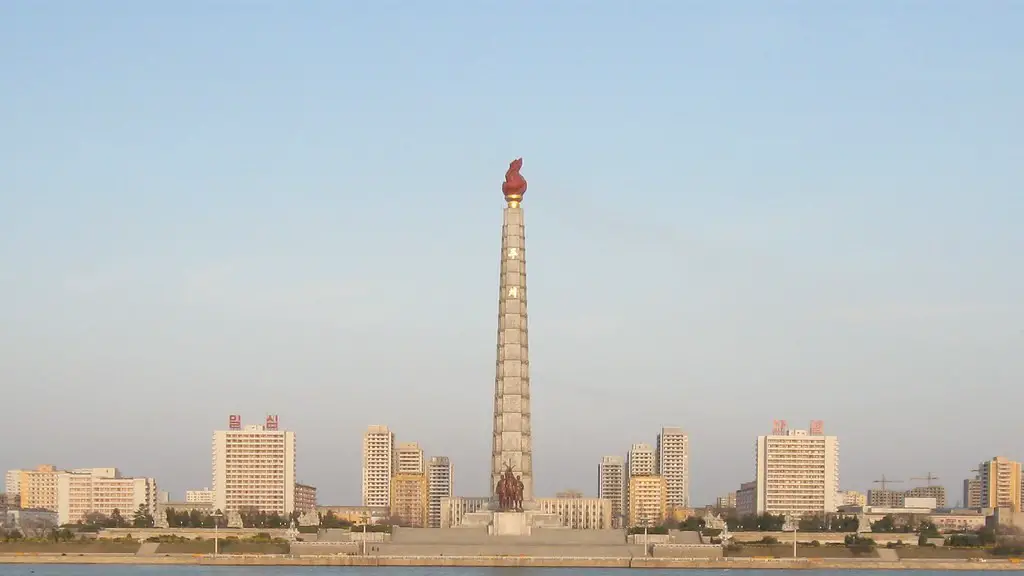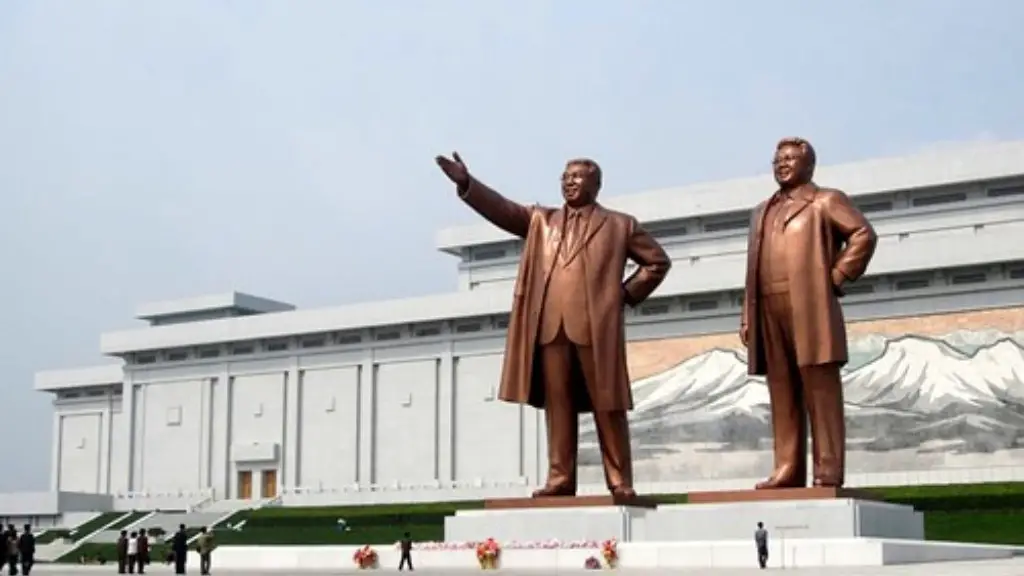Background
North Korea is a secretive nation located in East Asia and is one of the most isolated countries in the world.The history of the nation’s relationship with the United States is long and complex.North Korea has been at war with the United States since the 1950s, after the Korean War ended in an armistice in 1953.In spite of the armistice, tensions between the two countries have remained high and open hostilities have broken out on multiple occasions.The relationship between the two countries has been characterized by fear, mistrust and aggression.
North Korea is led by an authoritarian government and its policy towards the US has long been one of hostility. The nation has sought to build up its military forces, nuclear weapons, and long-range missile technology in an attempt to counter the US and its allies in the region.In recent years, North Korea has become an even more isolated and oppressive state, with a continuation of its policy of hostility towards the US.
Data
According to the US Department of State, North Korea is currently believed to possess up to 20 nuclear weapons. The nation also has an extensive arsenal of conventional weapons, including a large stockpile of ballistic missiles capable of reaching the United States and its allies.The International Atomic Energy Agency estimates that North Korea also has enough material for up to five additional nuclear weapons.
North Korea also maintains a 1.2 million-strong military and has been actively engaged in a campaign of military activity and provocations aimed at undermining US security in the region.The most recent of these activities occurred in 2016, when North Korea conducted two nuclear tests and launched several ballistic missiles, including one that flew over Japan.
Expert Perspectives
Experts agree that the US and North Korea are still in a state of war, despite the armistice that ended open hostilities in 1953. Stephen Bosworth, former US ambassador to South Korea and director of the Center for East Asia policy studies at the Brookings Institution, comments: “South and North Korea are still technically at war because the war has never been officially terminated. So unless and until a peace treaty is negotiated and in place, it’s still a state of war.”
Duyeon Kim, adjunct senior fellow at the Center for a New American Security and visiting senior research fellow at the Korean Peninsula Future Forum, explains: “The US and North Korea are in a state of conflict, but not necessarily full-scale war. The two sides have shied away from totally cutting off the diplomatic channels.”
Relationship with South Korea
South Korea is a close ally of the United States and has also been in a state of war with North Korea since 1953.The two countries are separated by the Korean Demilitarized Zone, which is a heavily fortified border between them.South Korea has been an advocate for dialogue and negotiations, and recently the two countries began talks of possible reunification.
The South Korean government is supportive of normalizing relations between the US and North Korea, although it has expressed concern about the possibility of North Korea developing nuclear weapons. President Moon Jae-in has been vocal in encouraging the Trump administration to pursue diplomatic strategies with North Korea and avoid military action.
Negotiations with the United States
Despite tensions between the US and North Korea, negotiations have been ongoing in an attempt to reduce the tension and de-escalate the conflict.The most recent of these negotiations occurred in 2018, when the US and North Korea held talks in Singapore.The two countries agreed to work towards the denuclearization of the Korean peninsula and the establishment of a stable peace regime in the region.
Since then, negotiations have stalled, with little progress being made towards peace. North Korea has continued to expand its nuclear capabilities and has conducted several missile tests in recent months.The US maintains that it is open to negotiations, but is unwilling to soften its stance on nuclear weapons.
Analysis and Insights
North Korea has been at war with the United States since 1953, and despite numerous attempts at negotiation the two nations remain in a state of conflict.The US maintains a policy of maximum pressure on North Korea in an attempt to limit its nuclear capabilities, while North Korea continues to expand its military arsenal in an effort to counter US aggression.
North Korea’s actions remain an ever-present threat to peace and stability in the region, and until a lasting solution is reached the United States and its allies will remain in a state of conflict with the rogue nation.
U.S. Sanctions On North Korea
The US has imposed economic sanctions on North Korea as part of its policy of maximum pressure. These sanctions target North Korea’s exports, aid, and banking transactions in an effort to pressure the government to abandon its nuclear weapons program.The sanctions have had a significant impact on the health of the North Korean economy and have caused a great deal of hardship for the people of North Korea.
Despite the sanctions, North Korea has continued to make progress on its nuclear program.This has caused concern in the US and among its allies in the region, who are concerned that the North Korean government may be able to develop a viable nuclear weapon that could be used against the US and its allies.
China and North Korea
China is North Korea’s closest ally and the two countries have a long history of economic and political cooperation. China is a major source of aid and trade for North Korea and has served as a buffer against US aggression.The Chinese government is supportive of North Korean efforts to normalize relations with the US and has encouraged talks between the two nations.
China’s influence over North Korea has led some to argue that China holds the key to resolving the conflict between the United States and North Korea. However, it is uncertain whether China will be willing to put pressure on the North Korean government to denuclearize.
Implications of Conflict
The US and North Korea are still in a state of war, with open hostilities likely to remain in place for the foreseeable future. The conflict between the two nations has caused instability and tension in the region and has led to an arms race between the two countries.The conflict also presents a threat to global security and peace, as the prospect of nuclear weapons being used in the region is a real one.
The US has sought to use economic sanctions and diplomatic negotiation in an effort to bring peace to the region, but so far this has failed to bring an end to the conflict.Until a lasting and stable solution is reached, it is likely that the US and North Korea will remain in a state of conflict.
Impact of Conflict on People
The conflict between the US and North Korea has had a devastating effect on ordinary people in the region.The US sanctions have caused widespread hunger and poverty in North Korea, while the North Korean government’s repressive tactics have left many citizens in fear and denied them basic human rights.
The conflict has also caused tension and instability in the region, with both sides engaging in verbal and physical provocations. The fear of escalation has had a destabilizing effect on the region and has caused deep anxiety and insecurity among the people of the region.
International Community and North Korea
The international community has been largely unsuccessful in its efforts to bring an end to the conflict between the US and North Korea.The UN Security Council has passed resolutions condemning North Korea’s nuclear tests but these have had little effect in deterring the North Korean government.The US and other countries have also imposed economic sanctions on the country, but these have had limited success.
The international community has expressed deep concern over North Korea’s nuclear weapons program and has long called for the denuclearization of the Korean peninsula.However, there has been little progress towards this goal and the conflict between the US and North Korea continues to be one of the most intractable issues in international politics.





